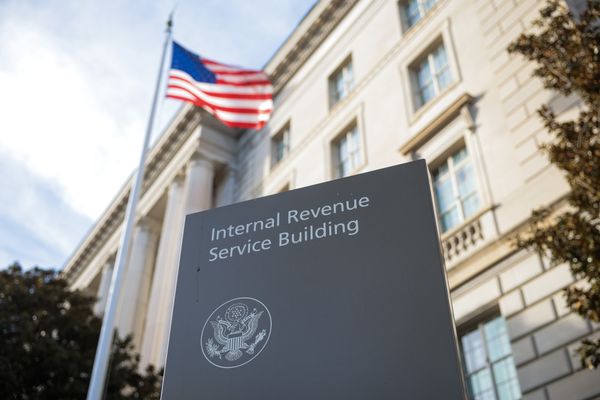UW Health nurses’ strike called off after agreement to seek counsel from Wisconsin Employment Relations Commission
University of Wisconsin Hospitals and Clinics Authority (UW Health) nurses called off a planned three-day strike after hospital management and nurses agreed to ask the Wisconsin Employment Relations Commission whether the hospital may legally recognize the union.
Background
SEIU Healthcare Wisconsin represented UW Health nurses until 2014. When the union’s contract expired, UW Health representatives said that 2011 Wisconsin Act 10, which former Gov. Scott Walker (R) signed into law, prevented it from negotiating a new contract. According to a 2011 memo from the Wisconsin Legislative Council, “Act 10 [eliminated] collective bargaining for … employees of the UW Hospitals and Clinics Authority.”
UW Health nurses began organizing in 2019. According to the Milwaukee Journal Sentinel’s Molly Beck, “UW nurses argue they have not been public employees since the University of Wisconsin Hospitals and Clinics Authority, which includes UW Health, was created in 1995, making union recognition possible under the law.”
The Sentinel’s Jessica Van Egeren wrote, “In the opinion of the nurses, clarity came on June 2 when Wisconsin Attorney General Josh Kaul — at [Gov. Tony Evers’ (D)] request after he met virtually with more than 400 nurses — issued a formal opinion that stated University of Wisconsin Hospitals and Clinics Authority can voluntarily engage in the collective bargaining process with its nurses, but it is not required to do so.”
Kaul wrote in the opinion, “In summary, although this opinion does not reach a conclusion on the issue, it appears that the Peace Act [a subchapter of chapter 111 of the Wisconsin Statutes] includes the Authority in its coverage based on the statute’s plain text. Assuming that the Authority is not covered by the Peace Act [and, thus, is not required to collectively bargain], I conclude that it is within the Authority’s statutory power to voluntarily engage in collective bargaining.”
In 2021, the Wisconsin Legislative Council stated, “Under current law, as affected by 2011 Act 10, a collective bargaining status is not recognized for UWHCA employees. In particular, UWHCA does not have a duty to engage in collective bargaining with represented staff, and employees do not have a right to be recognized. There is no obligation on either party to meet and confer in good faith for purposes of collective bargaining. … In summary, UWHCA has no duty to recognize a union for purposes of collective bargaining on wages, hours, and conditions of employment, but a union representing employees could have arguments for other alternatives. In particular, employees may seek to ‘meet and consult’ with UWHCA to discuss those topics, may argue for NLRA coverage, or may seek voluntary recognition by UWHCA.”
On Aug. 24, UW Health nurses voted to strike from Sept. 13-16 if UW Health management did not agree to recognize and negotiate with the union. Before the vote, at least 1,500 nurses signed an online form supporting unionization. According to NBC15’s Nick Viviani, 2,600 nurses would be eligible to unionize.
UW Health representative Emily Kumlien said in August, “While UW Health can appreciate the idea of social activism, whether anyone supports or opposes recognizing a union to engage in collective bargaining is irrelevant until we determine whether one is legally allowed. … The attorney general has said he believes we can, but by his own admission, states that his opinion is not law and that only the courts or the Legislature can provide a conclusive answer. … UW Health will not violate the law.”
The agreement
According to Gov. Tony Evers (D), mediation began on Sept. 7 and continued through Sept. 11, including meetings at the governor’s residence. On Sept. 12, Evers announced at a press conference that the hospital and nurses had reached an agreement. According to a summary from UW Health, the parties “agreed to file a joint petition with the Wisconsin Employment Relations Commission (WERC) for a ruling ‘on whether the Peace Act applies to UWHCA.’”
According to WUWM’s Chuck Quirmbach, “The Wisconsin Employment Relations Commission is expected to look at the nurses contention that UW Health is not banned from recognizing their union, and whether a state labor law recognizing collective bargaining for public sector workers—it’s often called the Peace Act—covers the health care provider.”
Cap Times’ Natalie Yahr wrote, “If UW Health is covered by the Peace Act, it would be required to bargain with the nurses’ union. … [Should the agency] determine that UW Health is not covered by the Peace Act, there will be a subsequent process to determine whether the hospital is permitted to voluntarily recognize and bargain with the union.”
UW Health CEO Dr. Alan Kaplan said, “We said for over a decade that the legal situation does not allow us to recognize a union. I know others have different opinions. This agreement finally sets forth a path to resolve the question once and for all.”
According to Quirmbach, “It’s expected to take a few months to get some answers in the UW Health case, or longer if the two sides wind up in court.” Beck wrote, “The matter could ultimately end up at the Wisconsin Supreme Court, which is controlled by conservatives 4-3.”
What we’re reading
- The Baltimore Sun, “Baltimore County Council passes measure fully funding public library workers’ first labor contract,” Sept. 14, 2022
- WBOC, “City Employees Receive Collective Bargaining Rights,” Sept. 14, 2022
- The Sacramento Bee, “California union members would get money from state for paying dues under bill on Newsom’s desk,” Sept. 14, 2022
- CNN, “Seattle teachers vote to officially end strike that had delayed start of the school year,” Sept. 13, 2022
- Government Executive, “A Conservative Group Wants to Make It Easier for Feds to Bust Their Own Unions,” Sept. 13, 2022
- Mother Jones, “Elizabeth Warren Introduces Bill to Bolster Union Power,” Sept. 10, 2022
- National Right to Work Legal Defense Foundation, “Blue Ridge Parkway Employee Challenges Federal Agency Decision Blocking Right to Vote Out AFGE Union,” Sept. 9, 2022
- AFSCME, “Behind the highest union approval ratings in 60 years,” Sept. 9, 2022
- Freedom Foundation, “Suit over Oregon’s legislative employee union finally gets under way,” Sept. 8, 2022
The big picture
Number of relevant bills by state
We are currently tracking 149 pieces of legislation dealing with public-sector employee union policy. On the map below, a darker shade of green indicates a greater number of relevant bills. Click here for a complete list of all the bills we’re tracking.
Number of relevant bills by current legislative status
Number of relevant bills by partisan status of sponsor(s)
Recent legislative actions
Below is a complete list of relevant legislative actions taken since our last issue.
-
California AB2556: This bill would change the timeframe for a local public agency employer to implement a final offer after a factfinders’ recommendation has been submitted in the case of a dispute between the employer and employee organization.
- Democratic sponsorship.
- Enrolled and presented to the governor Sept. 9.
-
California SB1313: This bill would prohibit Los Angeles County from discriminating against union members by limiting employee health benefits.
- Democratic sponsorship.
- Enrolled and presented to the governor Sept. 13.
Thank you for reading! Let us know what you think! Reply to this email with any feedback or recommendations.
Learn More






